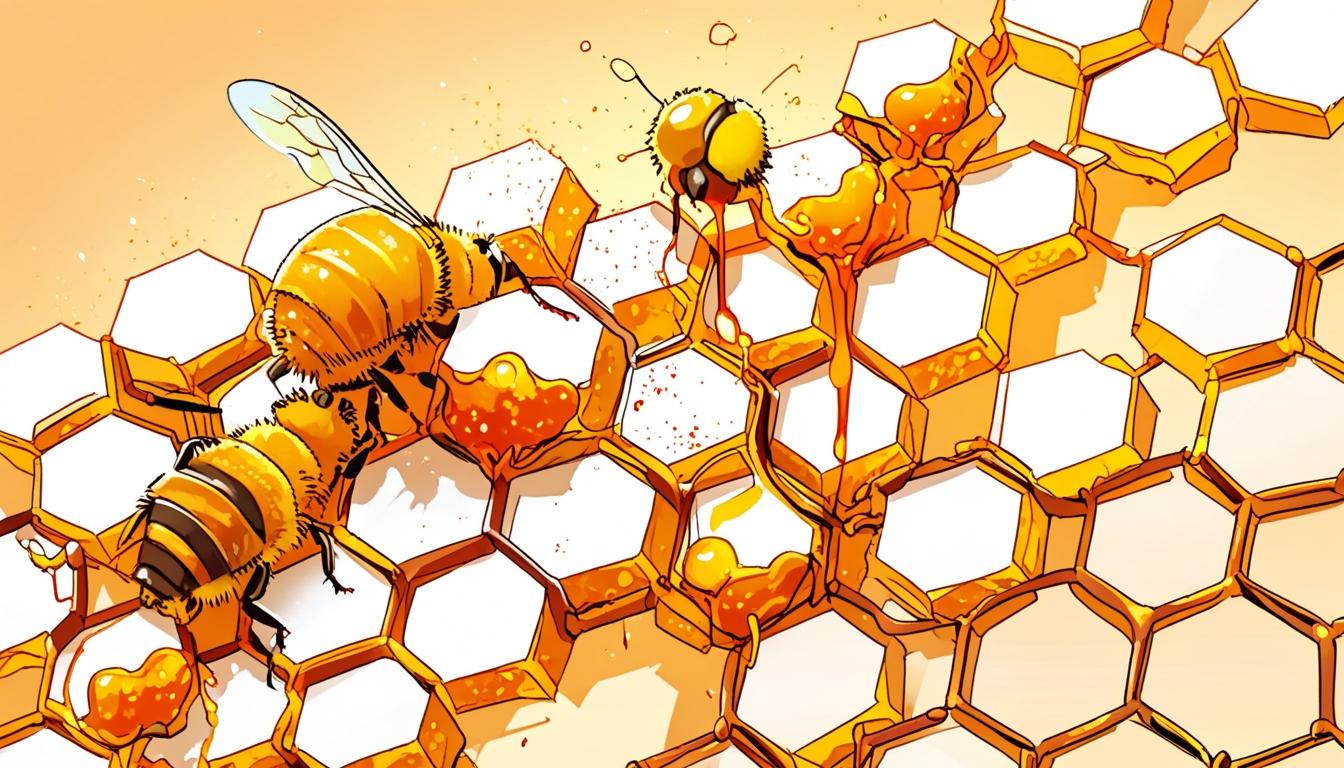Tests have revealed that an overwhelming majority—96%—of imported honey in the UK is found to be fake or fails to meet regulatory standards, highlighting a widespread issue of economically motivated adulteration (EMA) within the honey supply chain. This revelation comes amid growing concerns from regulatory bodies such as the UK Food Standards Agency and the European Commission, which have called for reform to enhance traceability and transparency in food supply chains.
Economically motivated adulteration refers to the intentional substitution of valuable ingredients with cheaper, lower-quality alternatives. In the case of honey, fraudsters often dilute the product with substances like high fructose corn syrup or thicken it with starch or gelatin. These additives closely mimic honey’s chemical profile, rendering it difficult to detect using traditional testing methods like isotope ratio mass spectrometry. Such counterfeit honey lacks the enzymes responsible for honey’s unique flavour and nutritional value, and characteristics vary naturally due to differences in nectar sources, harvest seasons, and geography.
A complicating factor in detecting counterfeit honey is the removal of pollen content by some companies prior to export. Since pollen is a key indicator of geographical origin, its filtration obscures the product’s provenance. The honey is often routed through intermediary countries such as Vietnam or India before reaching supermarket shelves, sometimes accompanied by falsified certifications to command higher prices. Regulatory authorities frequently lack the capacity to verify every shipment thoroughly, facilitating the continuation of these deceptive practices.
The impact of honey fraud extends beyond consumers; it severely affects legitimate beekeepers by saturating markets with cheap, inauthentic honey, undermining their livelihood. Ziya Sahin, a Turkish beekeeper, expressed frustration with the lack of regulatory power, stating, “Our beekeepers are angry, and they ask why we’re not doing something to stop it. But we have no authority to inspect. I’m not even allowed to ask street sellers whether their honey is real.” The Food and Drug Administration estimates that food fraud could affect up to 1% of the global food industry, equating to potentially $40 billion per year, underscoring the scope of the issue beyond honey.
Efforts to combat this fraud include the European Union’s Digital Product Passport initiative, which mandates by 2030 that all goods carry a detailed digital record of their lifecycle, origins, and environmental impact. Nonetheless, criticisms have emerged, highlighting that the system is vulnerable to forgery and manipulation, failing to address the underlying issue of trust and the capacity of fraudsters to circumvent regulations via opaque supply chains and complicit officials.
In response, some experts advocate for leveraging technological innovations such as self-sovereign identity (SSI) systems to establish more robust product authenticity verification frameworks. SSI employs cryptographically secured verifiable credentials issued by trusted parties like manufacturers or certification bodies to verify a product’s authenticity. These credentials are held by product owners and can be independently verified by retailers, customs officials, or consumers without reliance on a central authority.
SSI’s architecture, described as the “trust triangle,” ensures that every product must be backed by a verifiable credential from a trusted issuer, making it significantly harder to introduce counterfeit goods into the supply chain. Consumers can directly authenticate a product’s origin and history by scanning it, thereby reducing misinformation and the risk of fraud on retail shelves. Furthermore, SSI facilitates tamper-proof, end-to-end traceability across different regulatory bodies, standards, and regions, presenting a potential solution to overcome the challenges posed by paper-based bureaucracies prone to manipulation and delays.
Fraser Edwards, co-founder and CEO of Cheqd, highlights the limitations of current approaches, noting that “the EU’s Digital Product Passports aim to improve traceability; but unfortunately, they fall short of fraudsters’ sophistication.” He emphasises that government reforms must explore SSI-based frameworks to provide the necessary infrastructure for safeguarding supply chains from the extensive adulteration and fraud seen in honey and other products.
This issue calls attention to the complex interplay of regulatory challenges, technological opportunities, and economic impacts in addressing food fraud. The UK’s significant honey import market continues to face scrutiny as stakeholders seek more effective methods to ensure product integrity from source to consumer.
Source: Noah Wire Services
